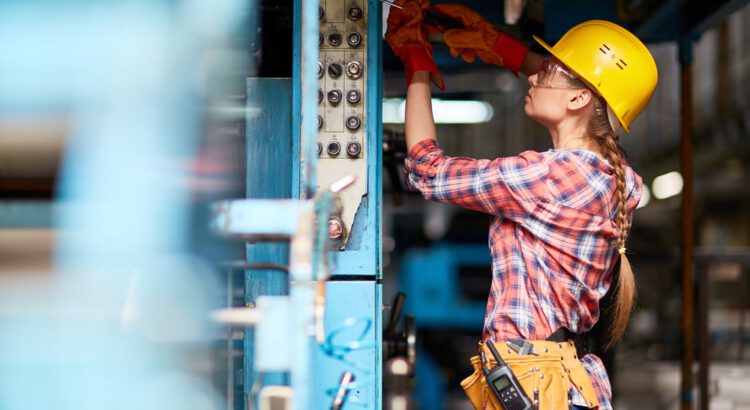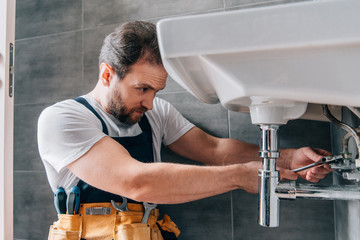Electrician Boca Raton installs, repairs, and maintains electrical wiring, fixtures, equipment, and systems in buildings. They also inspect the work they have completed to ensure it meets all local and national safety codes.

Most electricians earn their qualifications through on-the-job training. However, some technical and trade schools offer career diplomas or associate degrees in electrical technology.
Residential electricians are responsible for inspecting, repairing and installing wiring and electrical components in homes. They work with the National Electrical Code and local guidelines and regulations to ensure that electricity safely distributes throughout the home. These skilled tradespeople are also knowledgeable about utilizing devices to detect any issues with the current system and make necessary adjustments.
Residential electrical services include the installation of light fixtures and fans as well as rewiring older homes with newer, more energy-efficient lighting options. They can install ceiling fans, bathroom and kitchen lights, recessed lighting, chandeliers and sconces. They can also update or upgrade an existing electrical panel, replacing circuit breakers and upgrading the bus bar. In older homes, they may need to remove knob and tube (K&T) wiring if the insulation has degraded and replace it with modern industry-standard wire.
In many instances, a licensed electrician will need to install dedicated circuits for appliances like refrigerators, microwaves and sump pumps. This is to ensure that these heavy energy consuming appliances are on their own circuit and not competing with lighting, entertainment systems and other household items for power. They may also be required to fit ground fault circuit interrupters (GFCI) in bathrooms, laundry rooms and kitchens as a safety precaution.
Another common service that a residential electrician performs is wiring for electric car charging stations. This involves running a feeder from the main electrical panel to the garage, where the charging station will be installed. This is an increasingly popular trend that will likely increase the demand for electricians. This type of work requires a great deal of communication with the customer to determine what their specific needs are and how to best meet them.
Commercial
Commercial electricians work on electrical systems for businesses, including stores and offices. They may also be responsible for data cabling, which connects computers to each other and the internet. This is a highly technical job that requires special training and knowledge of the latest standards for data cabling. Commercial electricians are also skilled in identifying ways to improve a building’s energy efficiency, which can help save money on utility bills.
The main difference between a commercial and residential electrician is that commercial buildings require more power than homes. This means that the wires have a higher voltage and are usually run on three phases instead of two. This allows the electrician to install larger electrical panels and more outlets. The wiring is also usually exposed, unlike residential wiring that is hidden in rafters and behind walls. Because of the increased load and safety requirements, commercial electrical systems are more complex than those found in homes.
Many commercial and industrial electricians receive their training through an apprenticeship, vocational school or a combination of both. The apprenticeship typically lasts four to six years and includes classroom instruction and on-the-job training. Once they have completed their apprenticeship, these professionals can take their state’s journeyman exam.
Local codes and regulations often differ from the National Electric Code (NEC), which is why it’s important for these professionals to know their local codes well. They also need to understand OSHA safety standards, which include using personal protective equipment and following specific procedures when working on machinery. In addition, they should be familiar with the unique needs of each business, such as how to properly use a food manufacturing plant’s HACCP protocols.
Industrial
In addition to working with power and telecommunications systems, electricians also work in industrial settings. They might install lighting, power outlets or conduits in manufacturing plants, mining operations, construction sites and other industrial locations. In this setting, they can expect to spend their time in cramped conditions and deal with the risk of being exposed to live wires.
Electricians are more than just modern superheroes – they’re also vital to many industries, keeping their processes up and running during power outages. This is why the demand for these professionals continues to grow in the states.
An industrial electrician works slightly different to a commercial one, working with different types of equipment and focusing on industrial-specific safety regulations. In this role, you might be responsible for tasks like installing or repairing industrial lighting, power outlets, conduits and cable trays as well as fire-alarm and control wiring (commonly known as Voice-Data-Video or VDV).
If you want to move up the ranks, consider specializing in your skillset. Specialising offers increased earning potential and a clear path of progression, as you’re able to focus on the aspect of the industry that interests you most. NECA Education & Careers can help you specialise with a range of short courses that are tailored to different aspects of the electrical industry.
Other common duties include removing trees, branches or brush that interfere with electrical utility lines, responding to emergency calls from customers and providing general maintenance services like testing and analyzing voltage levels. In addition, an electrician can expect to collaborate with architects, engineers and building contractors as part of a project team. This can involve preparing quotes for new projects, hiring tradespeople and communicating with the customer to plan and complete the job.
Telecommunications
Electricians often become involved in telecommunications work, and this is one of the fastest-growing segments of the profession. This work involves installing and repairing electrical wiring and equipment for telephones, computers, radios, televisions, and other telecommunication devices. It also includes the transmission of audio and visual signals, which is sometimes called “television cabling” or “data cable.”
Telecommunications work is more complicated than other types of electrician jobs, as it requires a higher level of skill in reading technical diagrams and drawings. In addition, it is necessary to know how to use special tools that are designed for telecommunications installation and repair. Electricians who specialize in this area often find themselves working on a wide range of projects, from rewiring homes to installing complex networks for large business operations.
As a result, many electricians who work in the telecommunications industry are required to attend continuing education classes to keep up with the latest technology and regulatory changes. In addition, they may be required to perform on-call duty or shift work on weekends and holidays to handle emergency repairs.
If you’re interested in becoming an electrician, the first step is to complete an apprenticeship program through a local union or community college. These programs cost much less than trade school and allow you to earn money while you learn the trade. You can also check out the local job market to see what employers are looking for. Make sure the apprenticeship program you choose has on-the-job training and that you’re working with a licensed Master Electrician. All electricians must have a license in order to perform work on public and private electrical systems. To apply for a license, you’ll need to submit the following documents via the DOB NOW portal:
Electrical Inspector
Electrical Inspectors do a comprehensive review and checkup of your entire electrical system. They are especially helpful if you are doing major home renovations that require building permits, or if your lights flicker and burn out frequently. Electrical inspections also help prevent fire hazards caused by faulty wiring or outdated and dangerous appliances.
They will examine your breaker panel and ensure that the breakers are properly sized for the load they will be carrying. They will also check for any corrosion or overheating of the contacts. They will also look at the junction boxes to ensure they are easily accessible, that the wires are not buried under insulation and drywall and that each box has a cover. They will also inspect GFCI outlets (ground fault circuit interrupters) to make sure they are working properly and are located in areas that might be exposed to water.
Electricians can rewire your whole house or perform a more selective rewiring project. They can replace or upgrade your fuse box and install new outlets, switches and fixtures to match modern electrical requirements. They can also help you use your home’s energy efficiently by installing dimmers and timers, as well as smart plugs and home automation devices.
Electrical Inspectors can also help you with more complex issues, such as an unbalanced current or damage to your wiring from lightning, rodents, or water. They can replace your old knob and tube wiring with copper to prevent a fire hazard and install dedicated circuits for appliances such as garbage disposals and dishwashers that require their own dedicated power sources. They can also advise you whether or not your older house should have AFCI outlets installed, which are designed to detect overheating and shut off the current flow in order to prevent fires and electrocution.

